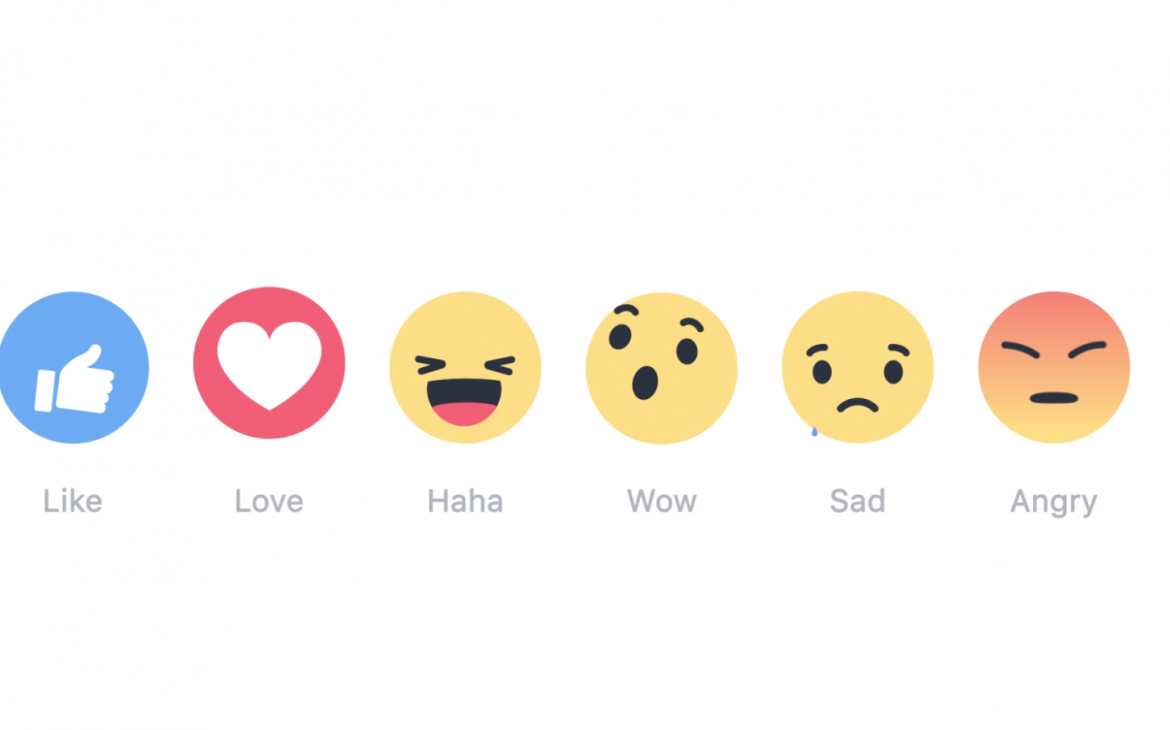These days it seems impossible to believe that there was ever a time before smart phones and the internet. And, for an increasing number of people, there wasn’t. Given that there is now very seldom a reason not to be able to get online, it should come as no surprise that many people spend a lot of their time doing so. However, how much of this time is devoted to chasing likes on things like social media?.
Social Media has probably been around for longer than you think. Geocities was launched in 1994. It allowed you to place your profile in the ‘city’ of your choice. Cities were more topic based than physical locations; ‘Area 51’, for example, was for Science Fiction and Fantasy. Incredibly, the last aspect of this site, Geocities Japan, only shut down less than a month ago, on 31st March 2019. The site was monitised in 1999.
While Geocities might not have been a full on social media site, Six Degrees, which launched in 1997, was. Six Degrees had the network element that made it recognisable as what we now consider a social network site. The site was shut in 2000. It popped back up again for a few years in the 2000s. I’m not sure what happened next, but it’s back again now; you can join the site here.
After that, you get into more recognisable territory:
- LinkedIn – May 2003
- MySpace – August 2003
- Facebook – February 2004
- YouTube – February 2005
- Bebo – July 2005
- Twitter – July 2006
- Tumblr – February 2007
- Instagram – October 2010
- Snapchat – September 2011
There are, and have been, a great many more social media sites. In fact, what differentiates a Social Media site from certain other sites is quite hard to define. I won’t bother trying because it’s not relevant to the post.
What is important is that, on February 9 2009, Facebook introduced the ‘Like’ button. And people have been chasing likes ever since.

The British Government has recently decided that, for children in particular, chasing likes is a societal problem. And they’re going to see if they need to do something about it… On April 12 2019, the Information Commissioner’s Office (ICO) announced that it was launching a consultation on a Code of Practice to help protect children online. The emphasis of the consultation is very much on child protection.
While it doesn’t mention ‘Likes’ and chasing likes directly, the announcement does refer to “nudge techniques”. This refers to the field of Nudge Theory which is defined as:
a concept in behavioral science, political theory and behavioral economics which proposes positive reinforcement and indirect suggestions as ways to influence the behavior and decision making of groups or individuals.
https://en.wikipedia.org/wiki/Nudge_theory
To be fair, that does kinda sound like chasing likes. And it doesn’t sound good.
And by ‘likes’ I don’t just mean the ‘Like’ options on Facebook and Instagram. Or even the streaks you build up on Snapchat. I’m talking about all of the Apps and Games that reward you in some way; they’re all variations on the concept of chasing likes. But, are they all bad news?
Well, in terms of the Like-Farming scams on Facebook; yes; they’re all bad news.
An example of Like-Farming is when a post goes round suggesting you need to like and share to be in with a chance of winning something. Maybe one of 200 spare iPhones that have been over-ordered. Maybe a holiday that is being given away to celebrate a big milestone in a travel agent’s timeline. It always astonishes me just how many people fall for these things. It’s not just that, of course, it can also be a heart-warming or tear-jerky story that everyone needs to see…
The point is that loads of people like and share and forget about it. The page is then sold on to a marketing company, who have access to the available personal information of everyone who liked, shared or commented. Which is why the ICO wants the personal information settings for children to default to the tightest privacy settings. To ensure their personal information is protected. Because if adults are constantly falling for stuff like this…!
But, anyway, that’s not actually my point, here. I’m not here to talk about how clicking Like can end up with you being harassed by dodgy marketing companies.
I’m more interested in how, in certain circumstances, clicking Like results in a physiological reward in your brain. Because, make no mistake about it, when you’re successfully chasing likes, the reward center of your brain lights up like a pinball machine.
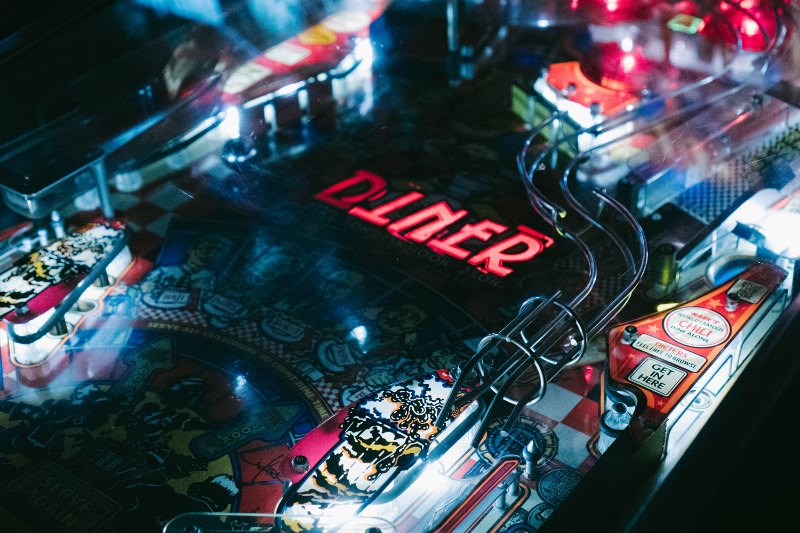
Photo by Julian Lozano on Unsplash
Because, yes, these things can be addictive. There’s no pretense that this is anything other that the truth. Just take a look at the following search results:
- 5 Addicting Apps for Wasting Time (iPhone Life)
- What are the best most addictive game apps ever? (Softonic)
- 25 Most Addicting iPhone Games (The App Factor)
- 30 Addictive Game Apps You’ve Probably Never Heard Of (Buzzfeed)
How often have you heard a game being advertised as, “The most addictive game ever!”?
This isn’t hyperbole.
Well, it is. But it’s also based on the reality that these games and apps, many of which can be played within social media, are genuinely addictive.
Because of this, Wikipedia has pages like these:
Chasing Likes, or Pokemon, or level-ups is a, Behavioral Addiction. Which is defined as, “a form of addiction that involves a compulsion to engage in a rewarding non-substance-related behavior.” Like you might associate with something that markets itself as, ‘the most addictive game ever’!
Also, though, what you might associate with the feeling of reward you get from achieving a certain number of likes, shares and comments from your social media posts. Ever notice how some people on some sites often post similar images and comments? Are they the ones that get the most likes? Are these people chasing likes?
As the father of two teenage daughters one of the common traits that seems to exist in their world is the selfie. A girl will post a selfie of themselves and then, it seems, all their friends are supposed to ‘Like’ the image and comment about how great the girls looks. Thankfully, my two don’t seem to have been drawn into this.
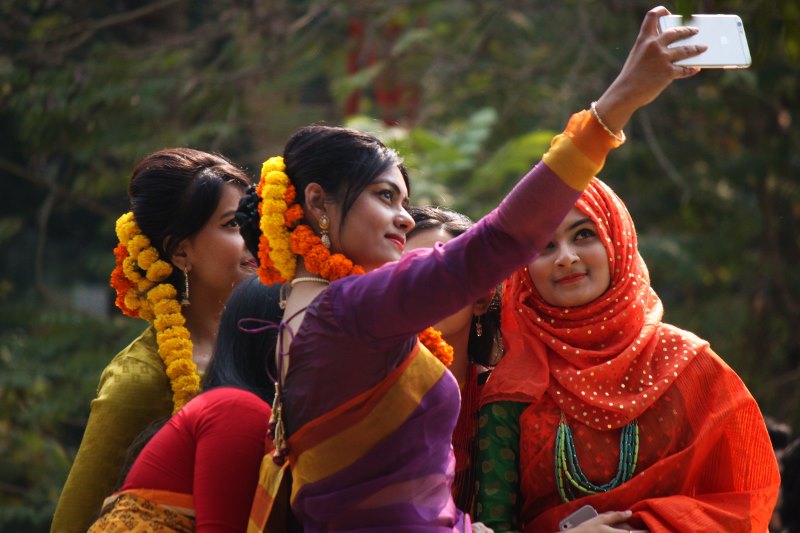
By Ashraf Siddiqui – https://www.flickr.com/photos/129659132@N05/16522941831/, CC BY-SA 2.0, https://commons.wikimedia.org/w/index.php?curid=39422014
This process of chasing likes for selfies seems a little on the narcissistic side to me. An opinion that isn’t helped by the news that words are exchanged if certain friends aren’t being enthusiastic enough about said selfies.
To my mind, taking selfies and then chasing likes and comments about how pretty you look, is a form of behavioral addiction that the World could well do without.
Games and Apps have been taking advantage of this phenomenon for a long time. It doesn’t matter what the reward is, the mind craves it.
Take Farmville, for example.
Farmville, like the Facebook ‘Like’ button, was released in 2009. It was also played through Facebook and, for a long time, it was the most popular game on the site. It’s a very good example of this type of game because it’s so well known, largely because it’s been around for so long.
The game is very simple. It gives you a series of tasks and then rewards you for completing them properly. In this case you plant crops, you water and then harvest them, after which you can sell them for ‘Farm Coins’. You use the Farm Coins that you’ve earned to improve the size and complexity of your farm. Gaining these rewards also increases your experience points (XP). Increasing your XP enough allows you to level up. Leveling up increases the options available to you.
As you progress through a game, the complexity increases but the difficulty never does. You simply get an increased number and variety of very simple tasks to complete. The thing that changes is the time it takes to level up. Every level needs you to gain more XP points than the level before.
Typically, on a game like this, you can blow through the first five, or so, levels in an hour. You can do the first 10 in the first day. After that, progress gets progressively slower. It might take you the rest of the week to get to level 20. The rest of the month to get to level 30. And the rest of the year to get to level 40.
And, because each new level unlocks new things to do, you want to get to them. Because, while it’s still a little bit rewarding to do the original tasks, there’s far more reward in opening something new.
But, because of the time involved, you’re simply not getting the rewards as quickly as you want. As quickly as you need…
Fortunately, the games have a solution for this: in-game purchases. Or, more commonly now, in-app purchases.
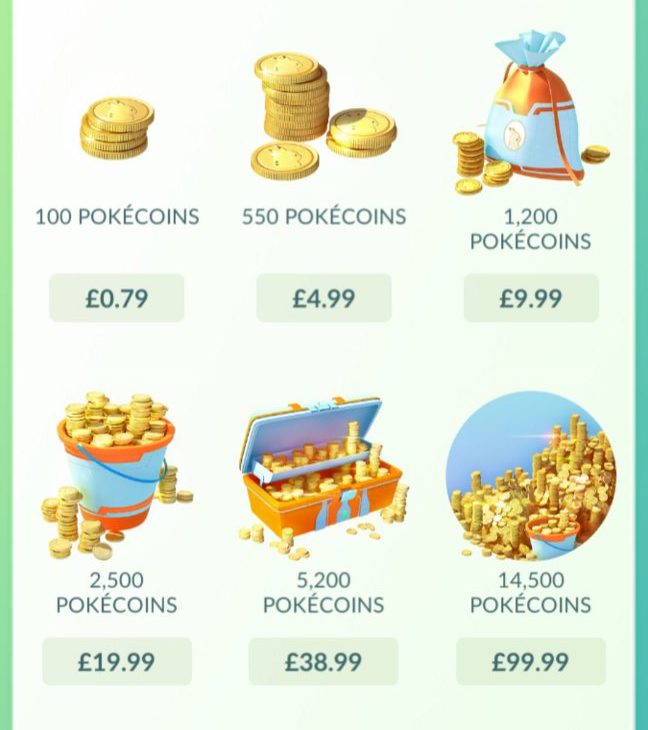
Using the example of Farmville again, the game allowed you to spend real money to buy ‘Farm Cash’. This was your money, paid through something like PayPal and gone forever from your bank account. With Farm Cash you could buy short cuts that leveled you up faster. It let you get your rewards faster.
And these games are clever; they have events and specials that can only be bought with real money. Sure, you don’t need them to complete the game but they can make things easier.
And these In-App purchases are such small amounts that it certainly can’t hurt, right?! They usually start off at a couple of quid (bucks). The price of a coffee, or a beer. Certainly nothing to worry about. Except that it buys you such a small amount of in-app money that you blow through it really quickly. So you get some more. Then you realise than there are other purchase options, and the way you’re buying this in-app money is the least efficient of the available options. You know this because the Game, or App, will tell you.
In fact, the most cost effective option is the most expensive one. But it’s in the region of $100 (£65/€75), which is clearly too much. Except… well, you’ve spent almost that much already in all those little and medium purchases you’ve been doing. You might as well get it, after all, this is your hobby and it’s still cheaper than [insert justification here]. Besides, it’s only a one-off; this’ll keep you going forever.
Except, of course, it doesn’t.
And, yes, I am speaking from experience. Which is why I try very hard not to get too involved in games as they come out. Naturally, I fail on a regular basis and I get hugely addicted for a while. But I haven’t spent any money for quite a long time now.
While this isn’t chasing likes, is there really any difference between chasing likes and chasing pumpkin harvest time? Or chasing Pokemon…?!
Sadly, there is not. It’s just another way of ringing that reward centre bell.
But is this always bad? Is there a way that chasing likes can be a good and positive experience?
Well, let’s start with Pokemon Go.
Even if you spend real money, you still have to walk to hatch your eggs. Have have to walk to the Pokestops and Gyms. Not real gyms, virtual gyms in the game, where you make the Pokemon do the exercise. When Pokemon came out, Candy Crush was still king. The people who were into Candy Crush, which also had in-app purchases, mocked the Pokemon players for actually engaging in physical activity.
But both games could cost real money and only one had an element of a health benefit. I’ve played both, in my time, and only one of them made me walk 100s of miles to get my rewards. Literally 100s of miles. I used it as an incentive to do daily walks when I was recovering my health after chemotherapy.
So, for me, Pokemon had a real world health benefit. While I was still chasing my likes, in the form of Pokemon, I was also increasing my fitness.
This principle can be extended into Smartwatch makers like FitBit and Garmin. I currently have a Garmin and it attempts to inspire me to do more activity. By offering me rewards.
Through Garmin Connect, I am able to set challenges against friends and will be ranked at the end of the challenge. Connect also sets challenges against other, randomly selected, users and then ranks me at the end of the week. Things like ‘The 60,000 step challenge’, where a group of users who usually walk around 60,000 steps a week are pitted against each other to inspire them to do more and finish top.
Even better, Connect gives me badges:
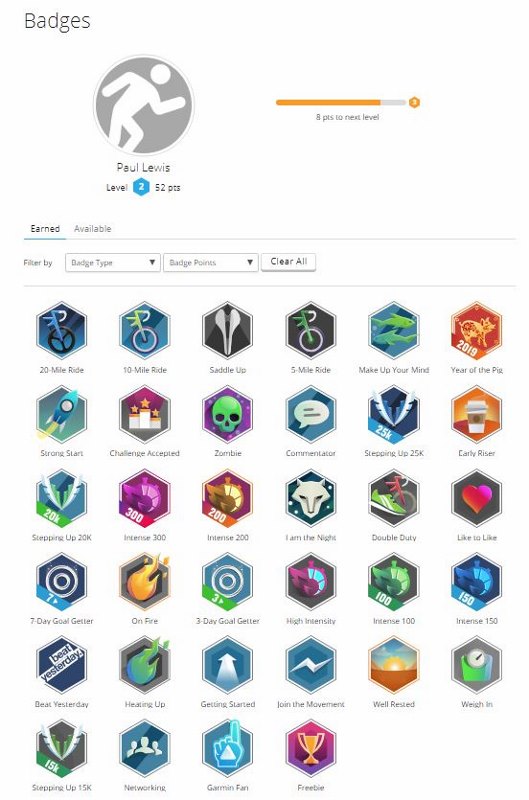
The only real way to get these badges is to do more exercise. The only way to get my rewards is to be more active. There are no in-app purchases here, only more sweat.
When it comes to chasing Likes, in the form of badges this time, you’d think that would be hard to top.
But you’d be wrong…
Ceri, my younger daughter, is revising hard for her GCSEs. The exams at the end of her High School (for 15-16 year olds). When Emma did her revision, she did it through flash cards. This approach doesn’t work so well for Ceri. And that’s fine, because a number of sites have turned revision into a game.
Ceri has accounts with the following sites:
- Quizlet (English)
- Hegarty Maths (Mathematics)
- Seneca (Sciences)
- Tassomai (Sciences)
All of them set targets and goals and reward you, in some way, when you hit them. Some of them offer league tables to see how you’re comparing with other users. Some of them offer badge-like progress rewards.
These programs are tapping into Behavioral Addiction principles in a positive way, to encourage revision and learning. They don’t involve in-app purchases but you do have to buy access to the sites upfront.
In this instance, chasing Likes, in the form of revision badges, is a very good thing indeed.
And while it’s easy to complain about the way that the youth of today always have their face stuck in their phone:
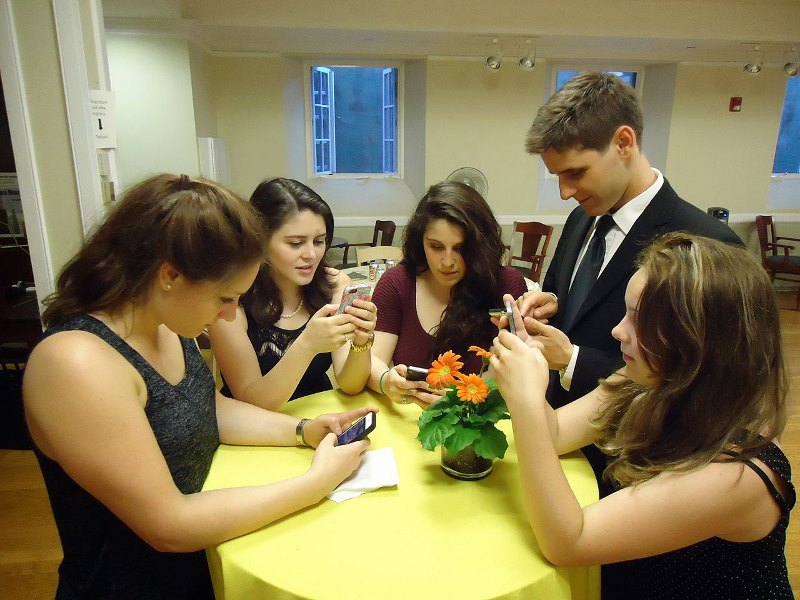
By Tomwsulcer. https://commons.wikimedia.org/w/index.php?curid=33873327
It should be remembered that, in generations past, the same complaints were made about Video Games. And Television. And, incredible though it might seem, magazines.
Regardless, though, chasing Likes is a behavioral addiction and should be recognised as such. If the ICO come to the conclusion that this information needs to become more widespread and better understood, I have no problem with that. In the meantime, however, I am interested to see how many other positive uses for the phenomenon can be developed.
Chasing Likes might be a form of addiction but it’s here to stay. Let’s see how many other ways there are to make this a good thing.
